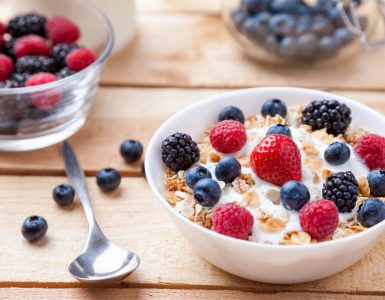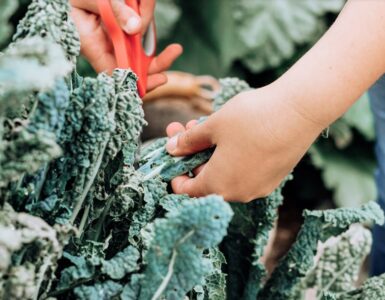With a unique combination of essential nutrients, the recommended intake of dairy products is important through all life stages – from infancy through to late adulthood.
No matter your age, milk, cheese and yoghurt has an important role in your diet.
Dairy Australia breaks down the recommended dairy intake for your age group:

- Dairy for children
Providing children with a diet including foods from the five food groups will help kids get the range of nutrients and fuel they need.
Dairy products are best known for providing calcium to help build strong bones which grow rapidly during childhood. But there’s more benefits to dairy than just calcium. Other essential nutrients including protein for growth and development, zinc for brain function and vitamin A for healthy eyes are all found in dairy foods.
Depending on their age and gender, children need between one-and-a-half and three serves of dairy foods every day.
Most Aussie kids aren’t meeting the recommended serves of milk, cheese and yoghurt and/or alternatives every day. By including dairy products in kids’ meals, they will become familiar with the delicious taste and creamy texture of dairy foods and build good habits for life.

- Dairy for teens
As one quarter of adult bone mass is built between the ages of 12 to 14 for girls and 13 to 15 for boys, it’s important to eat enough calcium-rich foods, get enough vitamin D and do plenty of weight-bearing exercise like running, jogging or jumping to optimise bone growth.
Most Australian teenagers fall short of their recommendations for calcium, largely because they don’t have enough milk, cheese and yoghurt.
The Australian Dietary Guidelines recommend 3.5 serves of dairy for teens every day. A serve is 250ml (one cup) of milk, 200g (3/4 cup) of yogurt or 40g (two slices) of cheese.
In addition to calcium, dairy foods provide a natural source of nine other essential nutrients including potassium, phosphorous, magnesium, carbohydrate, protein, vitamin A, riboflavin, vitamin B12 and zinc. These nutrients are important for healthy blood and immune systems, eyesight, muscle and nerve function, healthy skin, energy and growth and repair in all parts of the body.
A healthy and varied diet will ensure teenagers get the nutrients they need to support growth:
- Eat a wide variety of foods from each of the five food groups.
- Don’t skip meals, especially breakfast. Eating breakfast can reduce cravings for unhealthy snacks later in the morning.
- Snack foods like chocolate and chips can be high in calories and low in nutrients. Instead, try a fruit smoothie, fruit toast with ricotta or dried fruit and nuts.
- Limit soft drinks and energy drinks. Milk and even flavoured milk are healthier drink choices.
- Swap sports drinks for flavoured milk – which has the added benefit of protein to support muscle recovery, as well as natural electrolytes to help rehydrate.

- Dairy for adults (19 – 50)
Foods from the dairy food group are lacking in the diet of most Australians, and it’s estimated 8 out of 10 Australian adults are missing out on the minimum recommended serves of milk, cheese, yoghurt and/or alternatives.
Maintaining a healthy diet and active lifestyle can have many benefits for now and later in life such as:
- increased energy levels
- achieving a healthy weight
- reducing the risk of chronic diseases like diabetes, heart disease and stroke reducing the risk of osteoporosis.
A healthy, balanced diet includes a variety of foods from across the five food groups:
- plenty of vegetables varieties, legumes and beans
- fruit
- grain (cereal) foods, mostly wholegrain and/or high cereal fibre varieties, such as breads, cereals, rice, pasta, noodles, polenta, couscous, oats, quinoa and barley
- lean meats and poultry, fish, eggs, tofu, nuts and seeds, and legumes/beans
- milk, yoghurt, cheese and/or their alternatives, mostly reduced-fat varieties.
The Australian Dietary Guidelines explains more on the foods and amounts that make up a healthy diet.
The Australian Dietary Guidelines recommends at least 2.5 serves a day of milk, cheese, yoghurt and/or alternatives for most adults aged 19-50. A serve from the dairy food group is a cup (250ml) of milk, three-quarters of a cup (200g) yoghurt, two slices (40g) of cheese, half a cup (120g) of ricotta cheese or appropriate alternatives.
Replacing some or all ‘junk foods’ with more nutritious alternatives like fruits, vegetables and dairy foods is one strategy on the way to a healthier diet. Junk foods are usually high in kilojoules but low in nutrients.
A healthcare provider can provide more information about ways to improve diet quality.
For more information about Australian dairy, or to explore a range of Dairy recipes visit the Dairy Australia website.






































Add comment